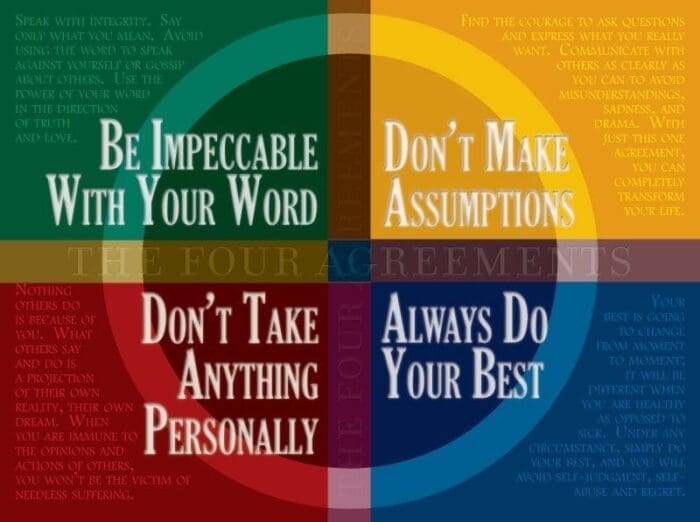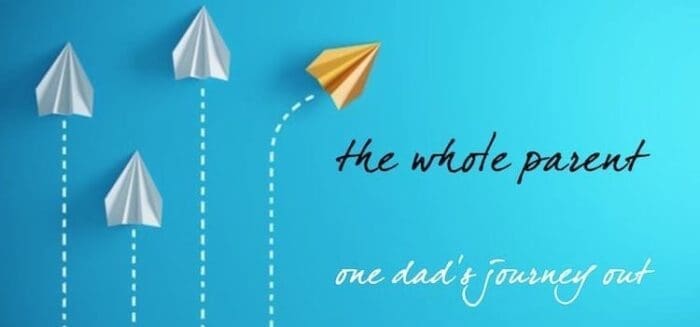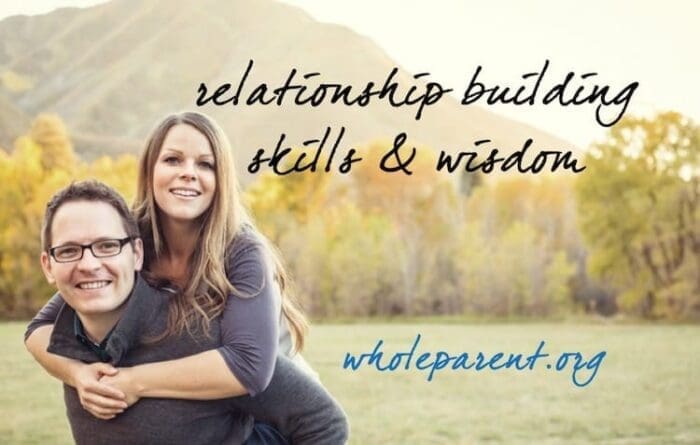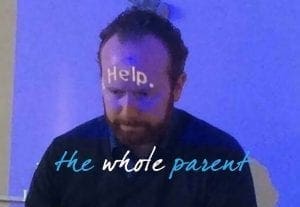My job, as your partner, is to let you off the hook when I can, to hold you accountable when I can’t, and to make distinctions about the difference.
What’s important to fight about? When is it best to let the fight drop and pick up the discussion when emotions are less enflamed? How long can you let a fight fester before you are damaging your relationship? Are there non-negotiables that should be dropped rather than discussed? Is everything up for discussion or debate? How can you embrace your partner even when they have pissed you off?
When we are upset, or our partners are upset, we are not thinking clearly. In these moments of emotional charge, we can often do great damage to each other by not owning our own process, or by blaming the other person for our anger. “Stay in your own lane,” is a current phrase for learning to own your own stuff and let everyone else own theirs.
Most of our deep hurt and anger is old trauma, old pain, and old shame. When a small event triggers a big harry response, it’s important to understand that some old pain has arrived at the party. It’s important to understand how to deal with our own individual pain. It is also important to learn how to navigate our relationships even when emotional pain rears it’s sharp claws looking for a target.
Let’s look at two very powerful systems that can help us navigate and negotiate our relationships even when trauma or emotional pain has entered the conversation.
The Four Agreements

The first step in any relationship (romantic or professional) is to agree to abide by these universal rules of engagement. Let’s go into each one and suss out the heart of the matter.
Be Impeccable with Your Word
When you say something, be honest. When you agree to do something, do it. When you give a colleague or partner your word, make sure you honor your commitment.
Don’t Make Assumptions
We all make assumptions. Assumptions about how something is going to work out. (Also known as expectations.) The problem with assumptions is they are mostly unspoken. What you want to do is communicate your expectations and outline any agreements you “think” you understand but don’t explicitly remember agreeing to. Let me give you an example.
In a personal relationship in my past, I shared a house with my partner. We shared the washer and dryer and often comingled our clothes as we moved through the week. In my assumption: the laundry bin (dirty clothes) and the dryer (clean clothes) were perfectly normal places to store clothing. My partner at the time was more driven and meticulous. In her world, we did laundry on Sunday. And we did all the laundry. And that included folding and putting it all away by the end of the day. While this pattern initially created some conflict, it eventually trained me to “just do the damn laundry when it’s dirty.” My assumptions about my own dirty and clean clothes did not fit well within my partner’s universe. I changed. In fact, I grew. I became a bit more conscious of where my laundry was in the process. And another benefit of this process: I didn’t need near as many clothes if they were always washed.
Don’t Take Anything Personally
We will always have misunderstandings and miscommunications. That’s part of life. What our responsibility is, as a conscious human is to understand our own complaints and misses. And when the other person has a miss, or misspeaks, or even hurts our feelings, IT IS UP TO US how we respond. We have 100% control over how we respond to any situation, conflict or ecstasy. When there is a disconnect between me and a friend, or a hurt nerve, that is causing frustration, it is up to me to OWN my response. I have to assume the other person is NOT TRYING to hurt me. They are merely going about life in their own fashion. If I can release the “personally hurt” part of myself, I can see things in a more balanced light. Sure, my friend forgot to bring me a milkshake when they went to the store. My ninja mind trick is to detach from my disappointment, detach from my butthurt feelings telling me they don’t care about me, and find my own resolve with the problem of the milkshake. Perhaps they were listening when I talked about cutting down on my sugar intake. In the right light, my partner might’ve been helping me rather than neglecting me. It’s up to me to check it out. And if I want a damn milkshake to go get one for myself.
Always Do Your Best
The agreements hinge on this little idea. We are all doing the best we can. Even if you are not getting your needs met, even your spoken needs (“please bring me a milkshake next time”), you’ve got to find the compassionate perspective, that your friend/partner is doing the best they can. And if that’s true (and you’ve got to begin believing that it is true) then they did not intentionally hurt you. They did not intentionally try to make you feel and unloved and unwanted by not bringing you a cold sweet drink. And if we’re doing our best, we can abide by the first three agreements and keep doing better by doing our best, again and again.
So, we’ve been reading and using The Four Agreements since 1997. And the idea of being impeccable with your word and your intentions moved us down the road of evolution in our relationships. Then, along came Brené Brown and her amazing TED Talk The Power of Vulnerability. Suddenly our understanding of relationships was beginning to take in more emotional data. And Brené followed up with another fantastic TED Talk Listening to Shame. These two bookends began to change our ideas of how men and women were wired differently to deal with sadness, shame, loneliness, and consequently, how we experience love relationships differently.
Brené took the next step in articulating her ideas about relationships, and relating to each other, in a fantastic concept called BRAVING. Here’s a 10-minute video from BRAVING on Oprah’s Super Soul Sessions, where Brené takes us through the major concepts behind BRAVING. Here’s my initial post on BRAVING: One Man’s Courage to Stand Alone: Brené Brown’s BRAVING.
An Outline of Brené Brown’s BRAVING

I’m not going to go through the entire process here, but I’d like to make a strong connection between The Four Agreements and Brene’s BRAVING.
In BRAVING the objectives are very similar. We want to be impeccable with our words and actions. And when our feelings get hurt, we want to own both our personal experience and the experience of our partner.
Owning Our Emotional Hurts
When I am hurt by my partner’s actions, it is my responsibility to separate the immediate hurt, the “trigger” from the bigger hurt, if there is one. When a minor miss becomes a dramatic cluster of emotions, it is our responsibility in an evolved relationship to hit the pause button. It looks something like this. “Hey, I know we just had a disagreement about tomorrow night’s plans, but I’m feeling really upset. I know it’s not about tomorrow night. I’m going to take some time alone so I can sort through the other stuff that’s got me triggered.”
Honoring the Emotional Hurts of Our Partners
In the same way, we have to learn to honor our partner’s emotional lives as well. When our partners or friends get really upset about what might appear to be a trivial disconnect, it is our responsibility to acknowledge and honor their hurt feelings. But… (And this next part is critical) we must not rush in and try to fix their feelings. In most cases, the “trigger” has set off some deeper hurts and deeper emotions that are not ours to own or deal with. In the past, when I had a partner that seemed to get triggered often, it was my responsibility to “go meta” as I called it. What this meant was, I was able to hold her lovingly while she worked through whatever was going on. I was also able to let her go be alone to process the overwhelming feelings without me. And most importantly, for me and any other empaths out there, I had to remain neutral and not take on the energy of her upset. I had to learn to stand next to my partner but not take on her pain.
I can honor your hurt feelings without taking ownership of them. I can trigger you by my thoughtless action, and in all the ways of The Four Agreements, I can own my part in the failed transaction. THEN, I have to let you go so you can do your work. I can let you know I am safe, I am not running away, and I can support you in your pain in any way that would support your recovery. Often, I was able to just hold my grieving partner. It was hard not to take on the hurt. It was my learned shame to try and blame myself for their pain. But here’s the ninja trick.
I Can Be Your Trigger, But I Will Not Be Your Target
I can bring up a pain for you to heal, but that healing cannot involve you making me out to be the bad guy. In the case of these recovered memories, that I triggered. I can own my part, my behavior, and I can get better at not triggering you around your issues. BUT, when triggered, I will not stand in for your old rage, the rage that needs to come out and be healed. This processing is for your therapist or coach. And it is the responsibility of the triggered person to acknowledge their own “triggered” state and ask for a time out. If your partner is visibly triggered and unable to manage their emotions, it is okay for you to ask for the time out.
If we can assume that our partners are doing their best, at all times, we can then begin to see their triggered and scared selves as a part of them that is coming up for healing. In romantic relationships, we have a huge opportunity to heal from past hurts and past traumas. We will be given the opportunities to be “triggered.” What we do with those opportunities as a couple, is how we begin to navigate and heal both ourselves and our partners.
Committing to BRAVING Your Relationship
We’ve got to be explicit in our plans as a couple. If we can agree to both The Four Agreements and BRAVING, we can take a quantum leap forward in our ability to manage and maintain a close and loving relationship, even in difficult times.
Can you share The Four Agreements with your significant other and both agree to cherish the bond between you? And once you’ve agreed to see the best in each other, can you also learn to incorporate BRAVING into your system of negotiation and repair of emotional upsets?
If you can learn and practice these two systems in your relationships, I believe you’re on your way to a happier and healthier life together. And in your other relationships, you can abide by these ideas without any agreement from the other person. Just do it. Just be clear about your intentions and actions. Live the Four Agreements, and practice BRAVING when you encounter emotional upset in any relationship.
Always Love,
John McElhenney – life coach austin texas
Facebook | Instagram | Pinterest | @wholeparent
As a certified life coach, I’ve been helping men and women find fulfilling relationships. If you’d like to chat for 30-minutes about your dating/relationship challenges, I always give the first 30-session away for free. LEARN ABOUT COACHING WITH JOHN. There are no obligations to continue. But I get excited every time I talk to someone new. I can offer new perspectives and experiences from my post-divorce dating journey. Most of all, I can offer hope.
A few more articles about Relationship Building:
- Own Your Pain, Leave the Rest Alone: Relationship Building Skills
- 7 Laws of Healthy Relationship Building: What Are We All Hungry For?
- My Love Message: No Worries, Just Desires
- Asking for Support is Hard for Most of Us
- The Core Feeling of Connection and Love
- The Company You Keep and Keeping Your Own Company
- Let’s Make Some Changes and See What Happens: Relationship Building
References:
- The Four Agreements – Don Miguel Ruiz
- Braving the Wilderness – Brené Brown
- Single Dad Seeks – John McElhenney




